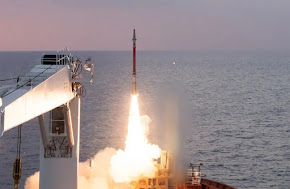China said the southern command of the People’s Liberation Army’s (PLA) deployed ships and aircraft to warn US destroyer USS John S. McCain as it sailed through the disputed waters of the South China Sea (SCS).
The incident took place as Shandong, China’s second aircraft carrier, was said to be conducting drills in the SCS region after sailing through the Taiwan Strait on Sunday.
China claims nearly the entire SCS but that claim is disputed by several maritime neighbors including the Philippines, Brunei, Malaysia and Indonesia, besides Vietnam and Taiwan, which China says is a breakaway region.
“The Chinese PLA on Tuesday expelled US destroyer USS John S. McCain after it trespassed into China’s territorial waters off Nansha Islands in the South China Sea,” said Senior Colonel Tian Junli, a spokesperson for the PLA southern theatre command.
China firmly opposes the US warship’s trespassing, said Tian, warning that the US moves undermine the peace and stability of the region.
“Such actions by the US have seriously violated China’s sovereignty and security and severely undermined peace and stability in the SCS,” Tian added.
The US guided-missile destroyer had last week practised anti-submarine warfare with a French submarine and Japanese carrier in the Philippine Sea.
A statement from the US 7th Fleet Public Affairs said the warship was conducting freedom of navigation operations in the SCS.
“On December 22, USS John S. McCain (DDG 56) asserted navigational rights and freedoms in the Spratly Islands, consistent with international law. This freedom of navigation operation (“FONOP”) upheld the rights, freedoms, and lawful uses of the sea recognised in international law by challenging restrictions on innocent passage imposed by China, Vietnam, and Taiwan,” the statement said.
“All interactions with foreign military forces were consistent with international norms and did not impact the operation,” it added.
The US statement added that unlawful and sweeping maritime claims in the SCS pose a serious threat to the “…freedom of the seas, including the freedoms of navigation and overflight, free trade and unimpeded commerce, and freedom of economic opportunity for SCS littoral nations”.
In April, China had scrambled aircraft and deployed ships to track and expel a frontline US warship from near another Beijing-controlled region called Paracel Islands - also known as Xisha Islands in China and Hoang Sa Archipelago in Vietnam - in the SCS.
Accusing the guided-missile destroyer USS Barry of carrying out a “provocative act” and violating Chinese sovereignty, the PLA’s southern command had then said the intrusion of the American warship prompted it to “track, monitor, verify, identify and expel” it.












